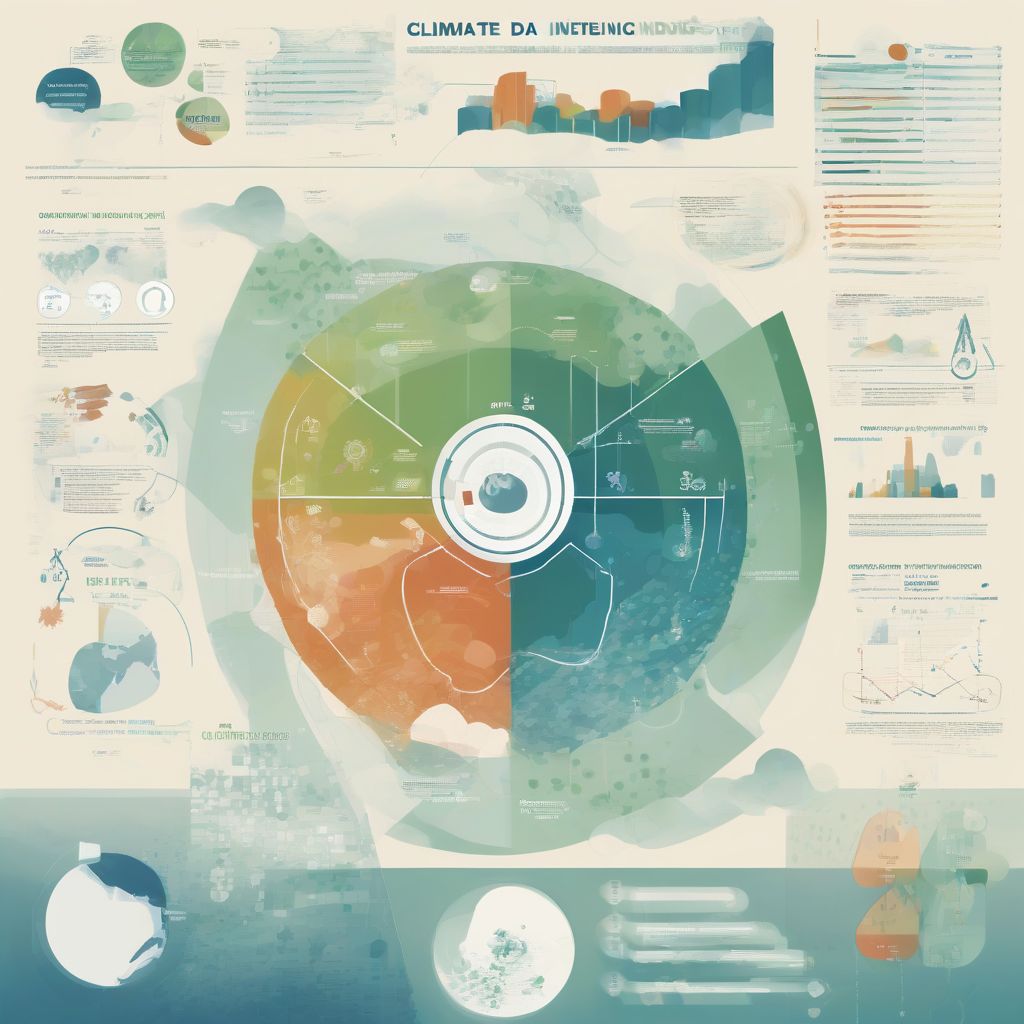Have you ever dreamt of a world where scientific understanding directly translates into effective action? In the face of climate change, that dream becomes a necessity. The role of climate science in shaping public policy is no longer a philosophical debate; it’s the cornerstone of our survival. This article dives deep into how climate science informs, influences, and inspires policy changes, offering a path towards a sustainable future.
Understanding the Connection: Climate Science and Policy
Climate science provides the empirical foundation upon which effective climate policies are built. It offers crucial insights into the Earth’s climate system, identifies human-induced changes, predicts future scenarios, and evaluates the effectiveness of various mitigation and adaptation strategies. Without this robust scientific understanding, policies would be akin to shots in the dark, lacking direction and effectiveness.
The Evidence Speaks: How Science Informs Policy
Climate science provides policymakers with concrete evidence of:
- The reality of climate change: Data from multiple sources, including ice cores, tree rings, and satellite observations, unequivocally demonstrate that the Earth’s climate is warming at an unprecedented rate.
- The human impact: Scientific research has established a clear link between human activities, particularly the burning of fossil fuels, and increasing greenhouse gas concentrations in the atmosphere.
- Future climate projections: Sophisticated climate models project various future climate scenarios, providing policymakers with insights into the potential impacts of different levels of greenhouse gas emissions.
- Effectiveness of interventions: Climate science helps assess the potential impacts of different policy interventions, such as carbon pricing, renewable energy mandates, and adaptation measures, enabling informed decision-making.
Bridging the Gap: Translating Science into Action
Translating complex scientific data into actionable policies is a significant challenge. It requires effective communication, collaboration between scientists and policymakers, and a willingness to act on the evidence.
 Climate Change Influences Public Policy
Climate Change Influences Public Policy
Case Studies: Climate Science in Action
Numerous examples demonstrate the positive impact of climate science on public policy:
- The Montreal Protocol: This international treaty, based on scientific evidence of ozone depletion, successfully phased out ozone-depleting substances, resulting in the recovery of the ozone layer.
- The European Union Emissions Trading System (ETS): This cap-and-trade system, grounded in scientific understanding of greenhouse gas emissions, has driven significant reductions in emissions from power plants and industrial facilities.
- The Paris Agreement: This landmark global agreement, informed by the latest climate science, sets ambitious targets for reducing greenhouse gas emissions and limiting global warming.
Overcoming Challenges: Navigating the Complexities
Despite the crucial role of climate science, several challenges hinder its effective integration into policy:
Political Polarization:
Climate change has become a highly politicized issue, often leading to partisan gridlock and hindering evidence-based policymaking.
Misinformation and Denial:
Organized campaigns spreading misinformation and denying the scientific consensus on climate change create confusion and erode public trust in science.
Short-Term Thinking:
The long-term nature of climate change often clashes with the short-term focus of political cycles, making it challenging to implement sustained and effective climate policies.
Economic Considerations:
Concerns about the economic costs of climate action can create resistance to implementing strong policies, even when the long-term benefits outweigh the costs.
Moving Forward: Towards a Sustainable Future
To enhance the role of climate science in shaping public policy, several key steps are essential:
Strengthen Science Communication:
Scientists must effectively communicate their findings to policymakers and the public, using clear and accessible language, avoiding jargon, and engaging in public discourse.
Foster Collaboration:
Increased collaboration between scientists, policymakers, and other stakeholders is crucial for building consensus and developing effective policy solutions.
Invest in Climate Research:
Continued investment in climate research is essential for improving our understanding of the climate system, developing better climate models, and evaluating the effectiveness of policy interventions.
Promote Public Awareness:
Educating the public about climate change and its potential impacts is critical for building public support for climate action.
Conclusion: A Shared Responsibility
The role of climate science in shaping public policy is paramount to our collective future. By embracing scientific evidence, fostering collaboration, and overcoming political and economic barriers, we can forge a path towards a sustainable and resilient future for generations to come. What are your thoughts on how we can better integrate climate science into policymaking? Share your ideas in the comments below. Explore more resources on the intersection of science, technology, and society at The Intersection of Science, Technology, and Society. Let’s work together to translate knowledge into action and build a more sustainable world.



